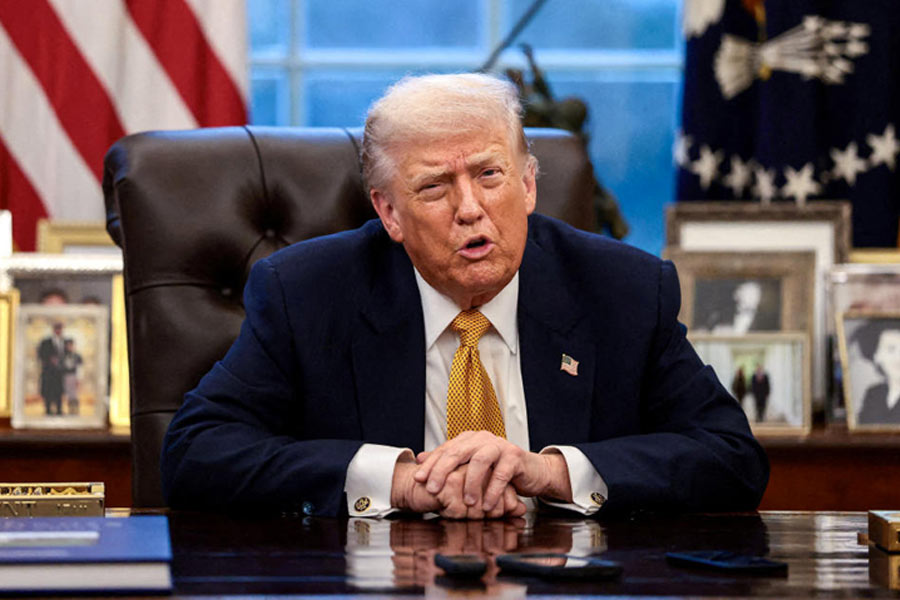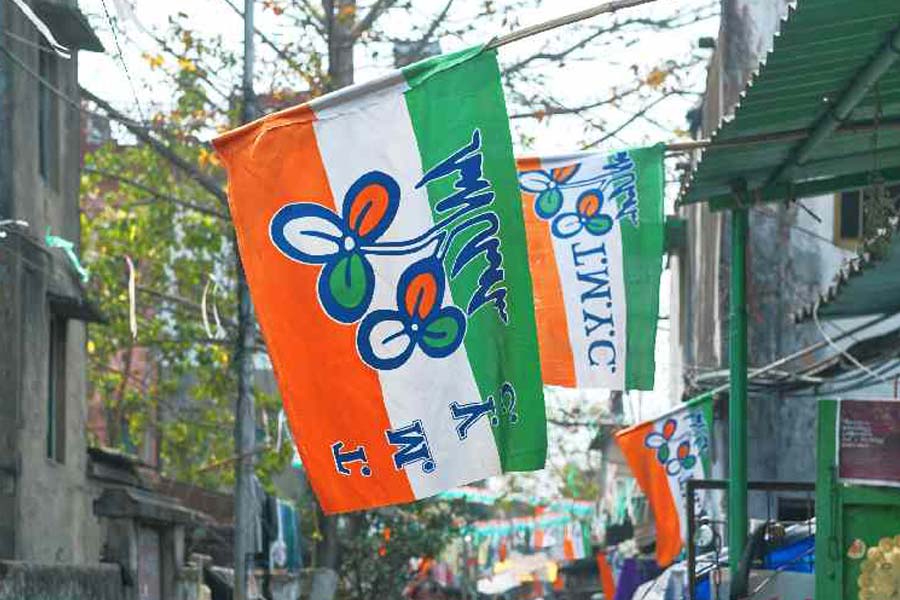New Delhi, March 5: Former Maldivian president Mohamed Nasheed’s re-arrest this afternoon may have brought to nought month-long Indian efforts to broker truce between major political players ahead of September’s presidential polls on the atoll nation.
Nasheed was picked up from home by anti-terror squad personnel this afternoon and whisked to prison on the nearby island of Dhoonidhoo to await a court appearance tomorrow. He is alleged to have ordered the illegal detention of a senior judge while in office, a charge Nasheed denies and labels politically motivated.
There were reports from Male of stray street violence in the wake of Nasheed’s arrest, confirmed by his brother Ibrahim Nasheed late this evening. “There have been sporadic protests and many incidents of demonstrators being beaten by security forces, but thankfully nothing very serious yet,” Ibrahim told The Telegraph over phone, “The former president has been taken away without a warrant that required him to be arrested, this is a political arrest and aimed at queering the atmosphere before the elections, as we have been saying.”
Ibrahim was able to see his brother along with lawyers for close to two hours this evening and said the former President felt he was being victimised. Asked if he apprehended a long prison term for Nasheed, Ibrahim said, “Well this is all political rather than legal so they might try all sorts of things. But I suspect it will be very troublesome for the government to hold him in prison for long because there will be protests on the streets. The government itself said less than 10 days ago that Nasheed was a free man and would not be arrested before the elections, they have suddenly gone back on their word. They first restricted his movements, now they have arrested him.”
Masud Imad, spokesman for Nasheed’s chief political rival and current president, Mohamed Waheed, was quick but cryptic with his reaction. “This is the law taking its course,” he said, “There is a due process and it must be respected by all.”
India, wary of being pulled too deep into the mire of domestic Maldivian acrimony, reacted with caution, appealing for calm and restraint. “We are monitoring the situation closely,” the spokesman for the ministry of external affairs said, “India expects due process and the Rule of Law would be followed. We would urge all concerned to exercise caution and restraint and not to resort to any violence or extra-constitutional means and steps which would weaken the democratic system.”
Over a little more than a year, New Delhi has found itself at the wrong end with both Nasheed and Waheed.
When Nasheed was forced out of power by Waheed in the February of 2012, India endorsed the change of guard. Relations with Waheed soured quickly, however, and reached a nadir with the Maldivian government throwing out Indian multinational GMR from a contract to build and modernise the Male international airport.
Part of New Delhi’s unease with the Waheed dispensation has also arisen from small but vociferous Islamist formations in the Maldives that have exhorted Waheed to adopt a more antagonistic stance.
Nasheed had run for cover from an earlier warrant in the same case and taken refuge in the Indian High Commission in Male on February 11, much to the chagrin of President Waheed. Nasheed imposed himself as guest and the Indian mission for more than ten days and left on February 23 only after a tacit India-negotiated assurance from the Waheed government that he would not taken in again.
A four-member Indian team, headed by Harsh Vardhan Shringla, joint secretary in the ministry of external affairs (MEA), held hectic to-and-fro negotiations between the government and Nasheed’s Maldivian Demotratic Party, before the former President agreed to leave.
On emerging from the Indian High Commission, Nasheed had announced to supporters that his understanding was that he “will be allowed unrestricted activity in the interest of a free and fair presidential election”. Nasheed has announced his candidacy for the election and received support from several nations including India and the United States, for his plea that he be allowed free conduct of political activities.
There were indications, even at that time, though, that tensions between Nasheed and the Waheed government could boil over into hostility again. Waheed’s spokesman, Masud Imad, had taken sardonic note of Nasheed’s decision to leave the Indian High Commission, calling it the “end of the longest meeting”. Nasheed had gone into the High Commission on the plea that he had a meeting with Indian officials.
Imad, and often anonymous voices in the Waheed establishment, have hinted at New Delhi’s “underhand intervention” in the domestic affairs of the Maldives and argued as if to say India must desist from violating Maldivian sovereignty. It was sentiment the Maldivian government repeatedly underlined even during hard-fought negotiations to save the international airport contract for GMR; despite international arbitration in GMR’s favour, the contract was awarded to a Malaysian developer.
New Delhi is bound to view Nasheed’s arrest as a breach of the backdoor deal struck in the days preceding the former president’s decision to leave the High Commission premises. It’s position has been that elections in the Maldives cannot be deemed free and fair with one of the main contenders behind bars. At the same time, it will also feel bound to respect the verdict of the Maldivian courts, which begins hearings against Nasheed tomorrow.










